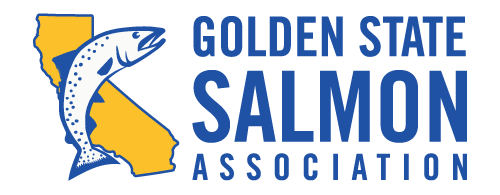SUSAN WOOD
THE NORTH BAY BUSINESS JOURNAL
March 16, 2021, 11:32AM
San Francisco Bay Area grocery stores and fish markets aren’t expected to be stocked with salmon this year, as fishery officials chose to delay the start of the season last week and restrict the time fishermen have on the water.
What’s the reason? It appears adult king salmon numbers from the Sacramento River fall run are projected by the Pacific Fisheries Management Council to be much smaller than last year’s. The state wants to protect more of the salmon navigating the rivers to spawn by shortening the season that they can be caught in the Pacific Ocean.
Expected to be decided within the next few weeks, there are three proposals on the table, all shorten the season considerably. The closest start may be May 1, instead of April.
Whatever decision is made, it is expected to be greeted with disappointment from commercial and sport fishing enthusiasts, tackle shops and other businesses reliant on this $1.4 billion industry that employs 23,000 people statewide, according to the Golden State Salmon Association. The group hosted a virtual conference to discuss the matter on March 12.
Attendee Tim Ely, who runs the Outdoor Pro Shop retailer in Cotati, estimates his store will lose $500,000 this year.
“I usually have a busy April, and people get excited to fish. Salmon is king, and people have been cooped up in their homes and wanting to get outside,” Ely said on behalf of sports fishermen.
Association President John McManus predicted a 40% loss in the season for sports fishermen, while Crescent City commercial fisherman George Bradshaw predicted the industry’s take would be down by two thirds.
The chinook salmon swim up the Sacramento River to spawn more than 30 miles from the San Francisco Bay.
The management council estimates about 270,000 salmon will head toward the Pacific Ocean where fishing fleets await compared to 473,200 in 2020.
Only about half those fish— 148,000 — may be harvested by commercial and sports fishermen, according to California Department of Fish and Wildlife. The remainder in the Sacramento River must be cast aside to survive and spawn. In the Klamath River, about 40,000 are deemed off limits due to government regulations.
But the last two winters have been lackluster in terms of water flows because of the lack of precipitation.
“The 3- and 4-year-old fish returning did not have good conditions. It’s important they have good flows in good water years,” Fish and Wildlife spokesman Harry Morse told the Business Journal about the threatened species.
The proposed options under review all shorten the commercial fishing season, beginning May 1, June 20 or June 24, instead of April.
The Monterey management section that encompasses the Central Coast from Pigeon Point south to the Mexico border will start April 3.
In April, the decision will be made which option is acceptable for the Northern California fleets.
“Commercial fishing has come out of two great years (for fishermen),” said Morse, the fisheries expert.
Two years ago, Fish and Wildlife counted 270,000 caught. Last year, 170,000 were hooked, he reported.
“It’s the boom-and-bust cycle for commercial fishermen,” he said.
The fishermen are suggesting allowing for a regular season, but the state believes too many are being caught before they mature for the survival of future generations.
Some fishermen don’t believe the salmon are “being overfished,” as Bradshaw indicated.
“We need to change how we’re operating. It doesn’t seem like we’re a priority,” Pacific Coast Federation of Fishermen’s Associations Executive Director Mike Conroy told the group.
The bad news for a delayed and restricted salmon fishing season comes on the heels of a slow, sputtering start for crab fishing fleets, which were stalled while fishery officials waited for migrating whales to leave the coastal region.
“The crab season was very disappointing,” Conroy said. “It’s in a downward slide, but we’re hopeful next year will be better.”
Longtime Bodega Bay fisherman Dick Ogg — who reels in crab, salmon, albacore and black cod — also holds onto the hope.
“What we’re seeing is a decline and environmental impact. I’m not a scientist, but I see cycles. We could see this coming,” he told the Business Journal.
Sure, dealing with the ebb and flow of the populations is par for the course, but other factors have clamped down on fishermen operations, Ogg explained.
“Twenty-eight days — that’s pretty tough,” he said of the proposed shorter salmon season, adding the on-and-off nature of a schedule with longer gaps makes the fishing operations more difficult.
“When we go out for five days, we know where the fish are, and we’re able to follow them. But when there’s a big break (in between catches), the school scatters,” he said.
As for a bad year of crabbing, Ogg turned to a different silver lining that may hold over into the salmon season.
“The only thing that’s kept us afloat is the prices were up,” he said.
